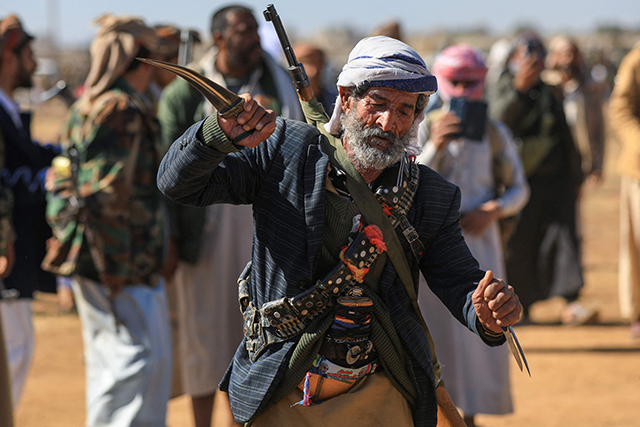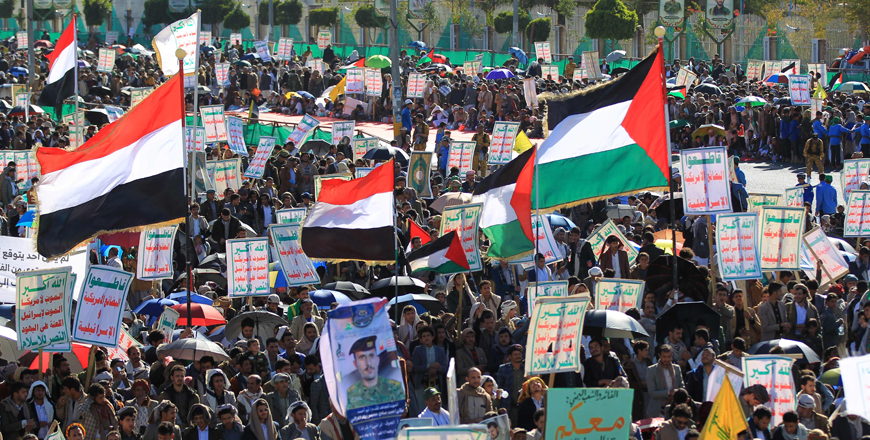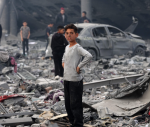You are here
US strikes Huthi targets in Yemen, hours after rebels hit Israel
By AFP - Dec 22,2024 - Last updated at Dec 22,2024

Smoke billows from the site of an Israeli airstrike that targeted a power station in the Huthi-run Yemeni capital Sanaa on December 19, 2024 (AFP photo)
SANAA — The United States on Saturday said it struck targets in Yemen's rebel-held capital, hours after a Huthi rebel missile wounded people in Israel's commercial hub Tel Aviv.
The missile, which wounded 16 people, was the second such attack in two days.
Among the targets of US forces was a rebel missile storage centre and a "command-and-control facility," the US Central Command (CENTCOM) said in a statement.
American forces also shot down multiple Huthi drones and an anti-ship cruise missile over the Red Sea, it said, shortly after the rebels' Al Masirah TV channel reported that an "aggression" had targeted the Attan district of Sanaa, blaming Western forces.
American and British forces have repeatedly struck rebel targets in Yemen this year in response to Huthi attacks on shipping in Red Sea-area waters vital to global trade.
Israel has also previously struck back, including against ports and energy facilities, after rebel attacks against its territory.
The Iran-backed Huthi rebels had claimed responsibility for the Saturday strike on Israel, saying they directed a ballistic missile at "a military target of the Israeli enemy".
The Israeli military said it failed to intercept the missile, forcing many residents to leave their homes in the early hours.
Huthis have repeatedly launched missiles against Israel in solidarity with the Palestinians since the war in Gaza began more than a year ago. Most of them have been intercepted.
"One projectile launched from Yemen was identified and unsuccessful interception attempts were made," after alert sirens sounded, the Israeli military said on its Telegram channel.
In a later statement, the military said Israeli civilians had been "deliberately targeted".
It stressed the country's "aerial defence is not hermetic" so Israelis should follow security instructions.
"I was at home and heard a loud explosion. I immediately went to the scene and saw significant blast damage to nearby buildings," medic Yosef Kourdi was quoted as saying in a statement released by Israel's emergency medical service, Magen David Adom (MDA).
"MDA teams provided medical care to 16 individuals who were mildly injured by glass shards from shattered windows in nearby buildings due to the impact of the strike," the statement said.
'Very lucky'
Ido Barnea, an IT manager whose apartment was damaged, told AFP a missile alert had sounded just before 4:00 am.
"Then there was a big ball of fire in the sky," he said. "I didn't even manage to get up and get dressed to go out."
An AFP photographer reported that many residents in the vicinity of the strike had to leave their homes, carrying only the essentials.
AFP images showed a large crater where the missile hit, and debris in the bedroom of a nearby house that was damaged.
Police swiftly cordoned off the neighbourhood.
Noa Mosseri, whose apartment was also damaged, told AFP she, too, heard the missile alert.
"We were very lucky because we didn't have time to get to a safe place. Within seconds there was a boom. We managed to get out and so we were not hurt," she said.
In their statement on Saturday, the Huthi rebels pledged to continue their attacks against Israel "until the aggression stops and the siege on the Gaza Strip is lifted".
The attack came two days after the rebels fired a missile that damaged an Israeli school.
The military said that missile had been intercepted but only partially, and its warhead "exploded and damaged the school".
In response, Israel struck several Huthi targets in Yemen, including in Sanaa, the first such strike on the rebel-held capital.
Rebel leader Abdul Malik al-Huthi said nine civilians were killed in the strikes.
Warning
Hours after the Huthi attack on Saturday, the Israeli military said it had intercepted a drone over southern Israel, which had approached from the east.
It did not specify the origin of the drone, but similar attacks have been claimed by the Islamic Resistance in Iraq group, also pro-Iran, since the Gaza war broke out.
Soon after retaliating for Thursday's attack by the Huthis, Israeli prime minister Benjamin Netanyahu warned the rebels of severe repercussions if there was any repetition.
"After Hamas, Hezbollah, and the Assad regime in Syria, the Huthis are almost the last remaining arm of Iran's axis of evil," Netanyahu said.
"The Huthis are learning and will learn the hard way, that those who strike Israel will pay a very heavy price for it."
On December 9, a drone claimed by the Huthis exploded on the top floor of a residential building in the central Israel city of Yavne, causing no casualties.
And in July, a Huthi drone attack on Tel Aviv killed an Israeli civilian, prompting retaliatory strikes on the rebel-held port of Hodeida.
Related Articles
OCCUPIED JERUSALEM — The Israeli military said Sunday it intercepted a missile launched from Yemen, the latest in a series of recent attacks
SANAA — Yemen's Huthi rebels said Wednesday that they had fired a ballistic missile and drones at Israel, days after an attack on Tel Aviv w
OCCUPIED JERUSALEM — The Israeli military said it intercepted two missiles fired from Yemen on Saturday, a day before a ceasefire is set to

















